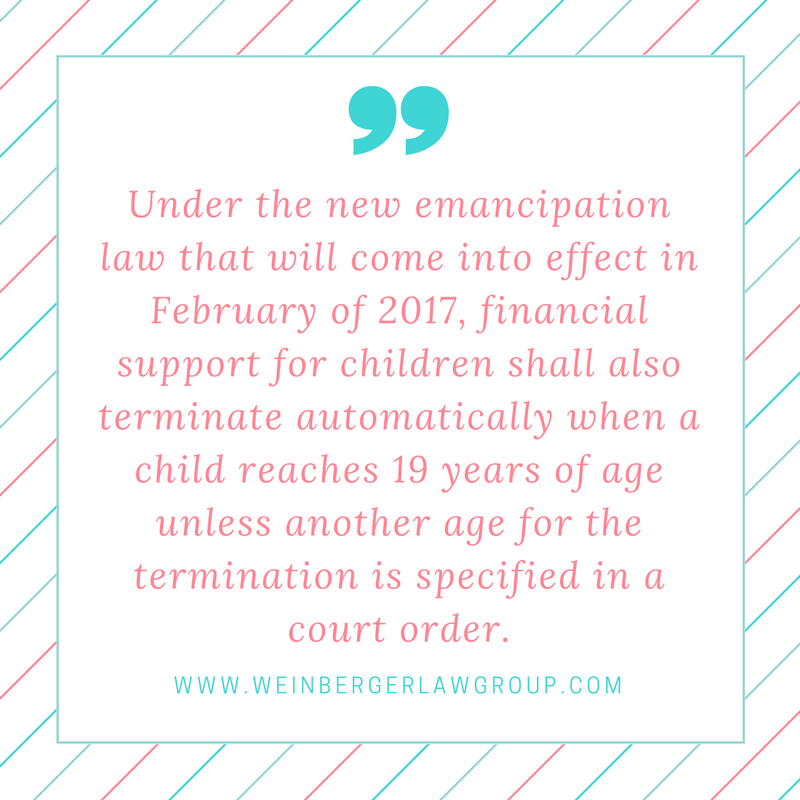Divorced Parents: Are You Required To Pay Your Child’s Grad School Tuition?
 There has been a lot of buzz about the changes to the child support statute in New Jersey set to take effect in February of 2017. Under the new legislation, there should be no financial support required by a non-custodial parent after a child turns 23 years old. Will there be exceptions to this rule when it comes to parental contributions to graduate school tuition? According to a recent child support ruling in Ocean County, the answer may be yes.
There has been a lot of buzz about the changes to the child support statute in New Jersey set to take effect in February of 2017. Under the new legislation, there should be no financial support required by a non-custodial parent after a child turns 23 years old. Will there be exceptions to this rule when it comes to parental contributions to graduate school tuition? According to a recent child support ruling in Ocean County, the answer may be yes.
In a new, unpublished opinion in the case J.C. v. A. C., Superior Court Judge Lawrence Jones decided that a child of divorced parents who is over 23 could sue for graduate school costs, although that child has the burden of proof to show that a non-custodial parent should be required to help with the costs of grad school.
In his decision, Judge Jones said that under the 2017 child support law coming into effect, there is a general presumption that child support ends at 23, when the child is presumed to be emancipated, or no longer in need of the financial support of his parents. But, Judge Jones also said that there could be circumstances in which a child over 23 could demonstrate that their noncustodial parent should be required to help pay for grad school. The child in this case has already graduated with a bachelor’s degree in accounting, will turn 23 in December and therefore be subject to the new 2017 law and has expressed an interest in attending graduate school. There was no agreement in her parents’ divorce that either would pay for graduate school.
Judge Jones, in his ruling, said the legislative intent of the new child support law, which was enacted in January 2016, was that there should be no further child support obligations for noncustodial parents after the child turns 23 years old. However, Judge Jones further stated, “While the new statute technically permits a 23-year-old student to seek an alternate form of financial contribution in lieu of child support, this does not mean that such an application should be granted.” This seems to leave the door open for adult students to seek contribution to post-graduate studies that is not necessarily called “child support” if that child proves exceptional circumstances warranting financial contribution to those studies.
What are those “exceptional circumstances?” It is unclear, even after this ruling. In fact, there is very little prior law here in New Jersey that even discusses contributions to graduate school by a non-custodial parent. And, the statute itself does not provide explicit direction as to what specific circumstances, beyond a “mental or physical disability”, would potentially constitute exceptional circumstances for an extension of a financial obligation to a child who is 23 years old or older.
Judge Jones scheduled the matter for a fact-finding hearing to determine if the 23 year old should or should not be emancipated, rather than if dad should contribute to grad school. It seems a distinction without a difference; however the burden is now squarely on mom and the 23 year old to prove why she should be seen as still under the “sphere of influence” of both parents.
If you have questions regarding your child support or your child’s college tuition payments, talk to an experienced attorneys who can assist you in calculating support or who can guide you as to whether or not you may be on the hook for contribution beyond undergraduate schooling. Since there could be “exceptional circumstances” where this could occur, get educated about your particular situation to learn if these circumstances could apply to you and your family.
Have questions about child support for your older child? We’re here to help. Please contact us today to schedule your initial attorney consultation.
Read More:
When Does Child Support End in New Jersey?



